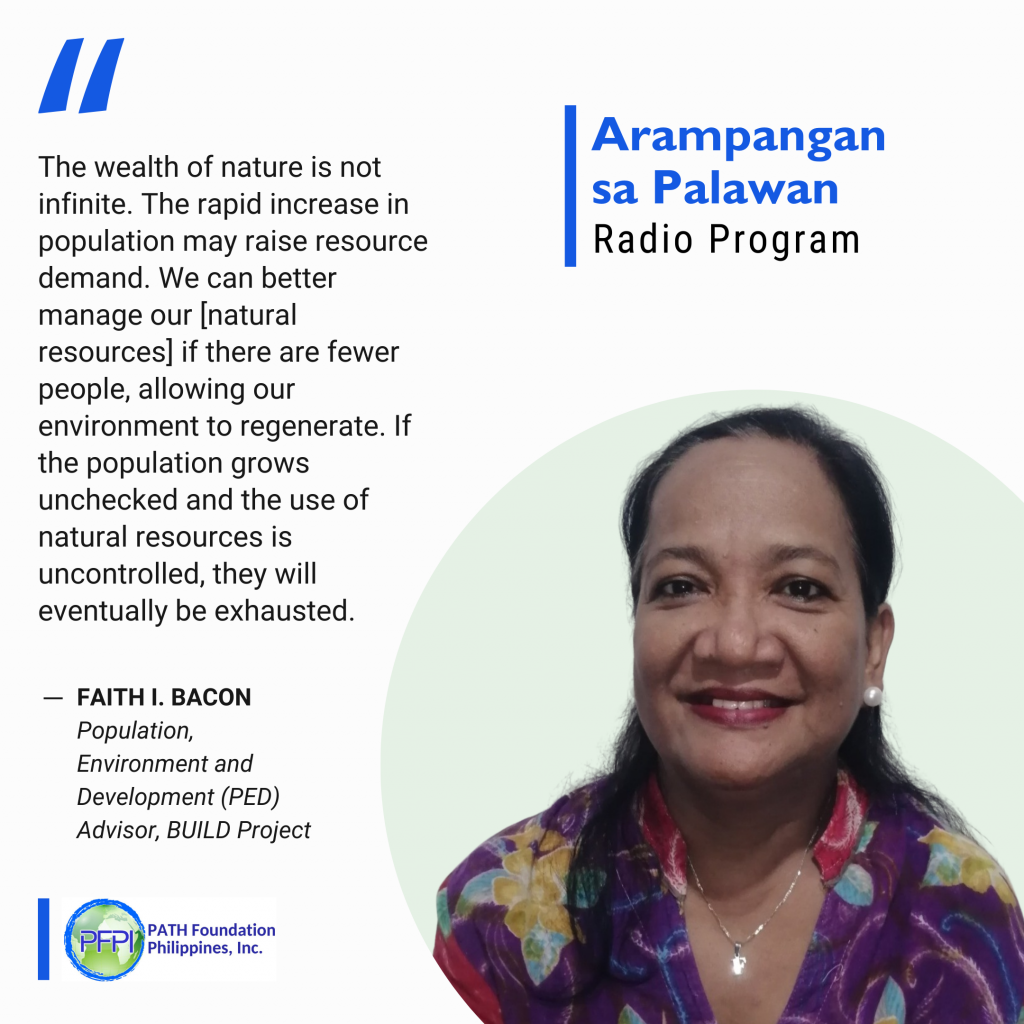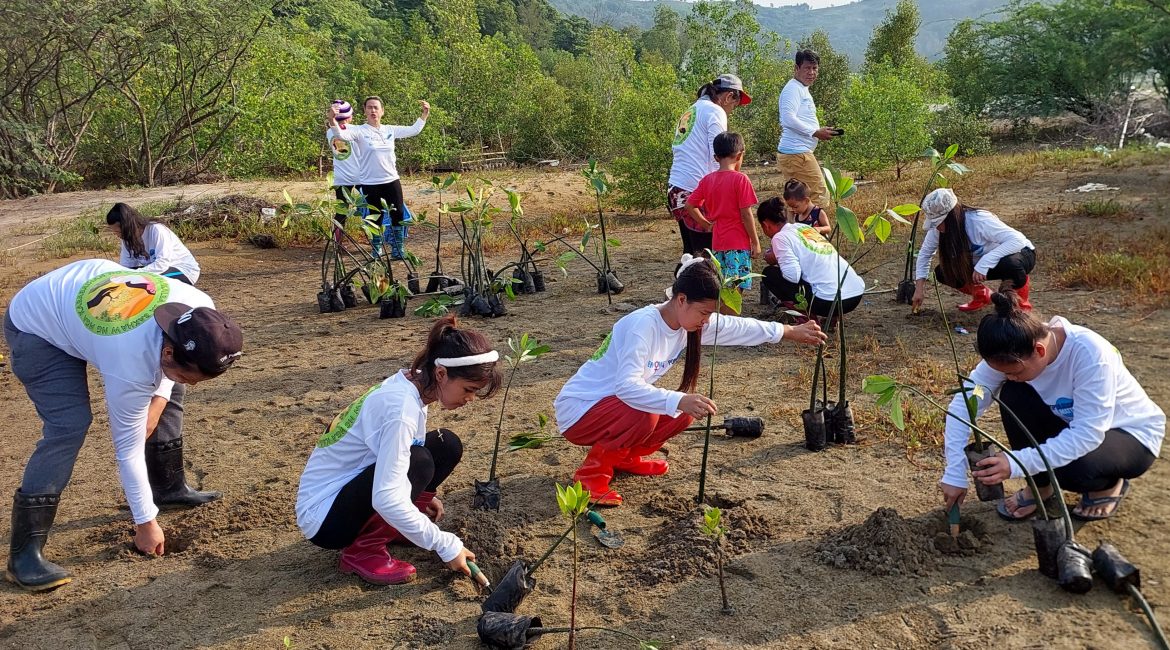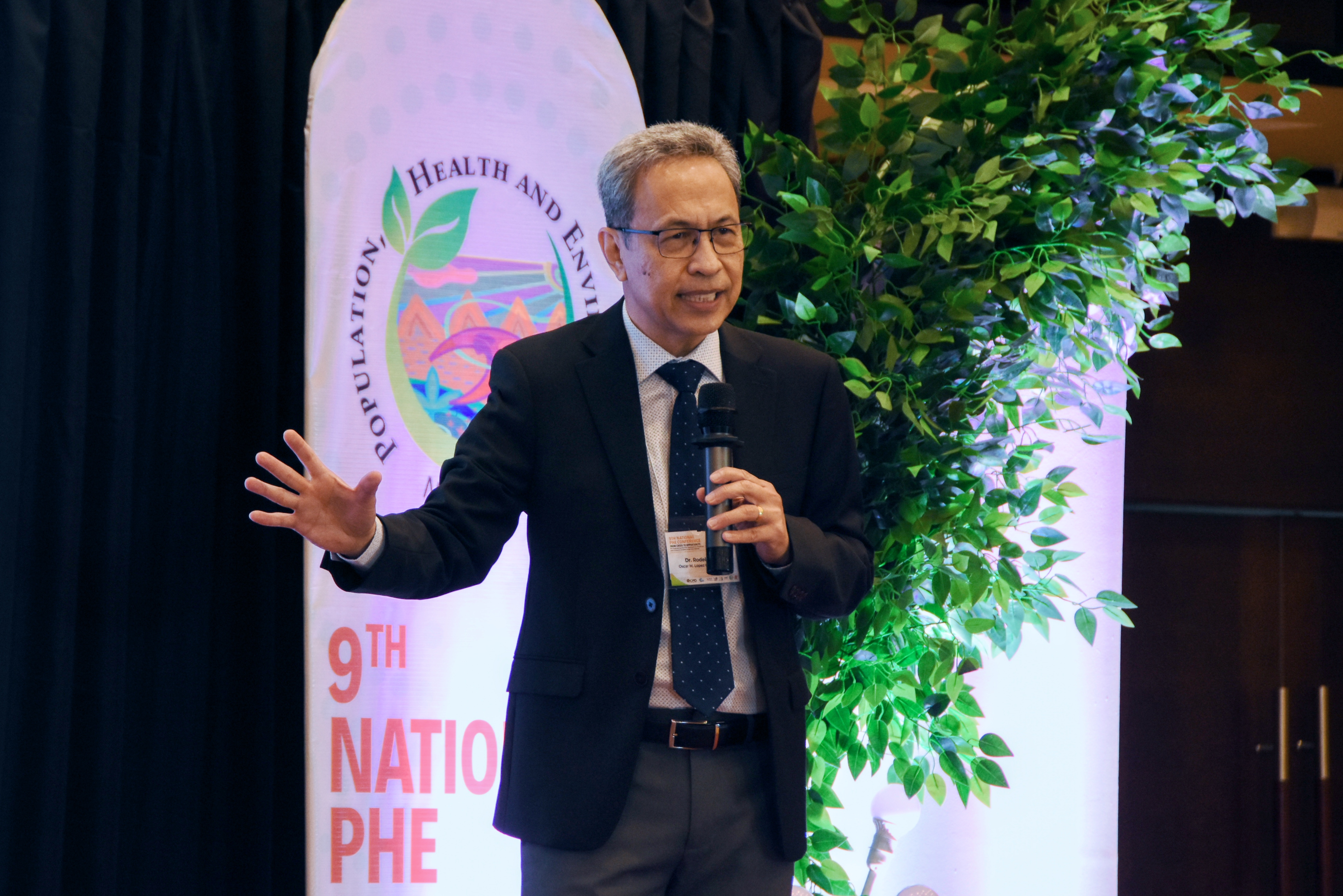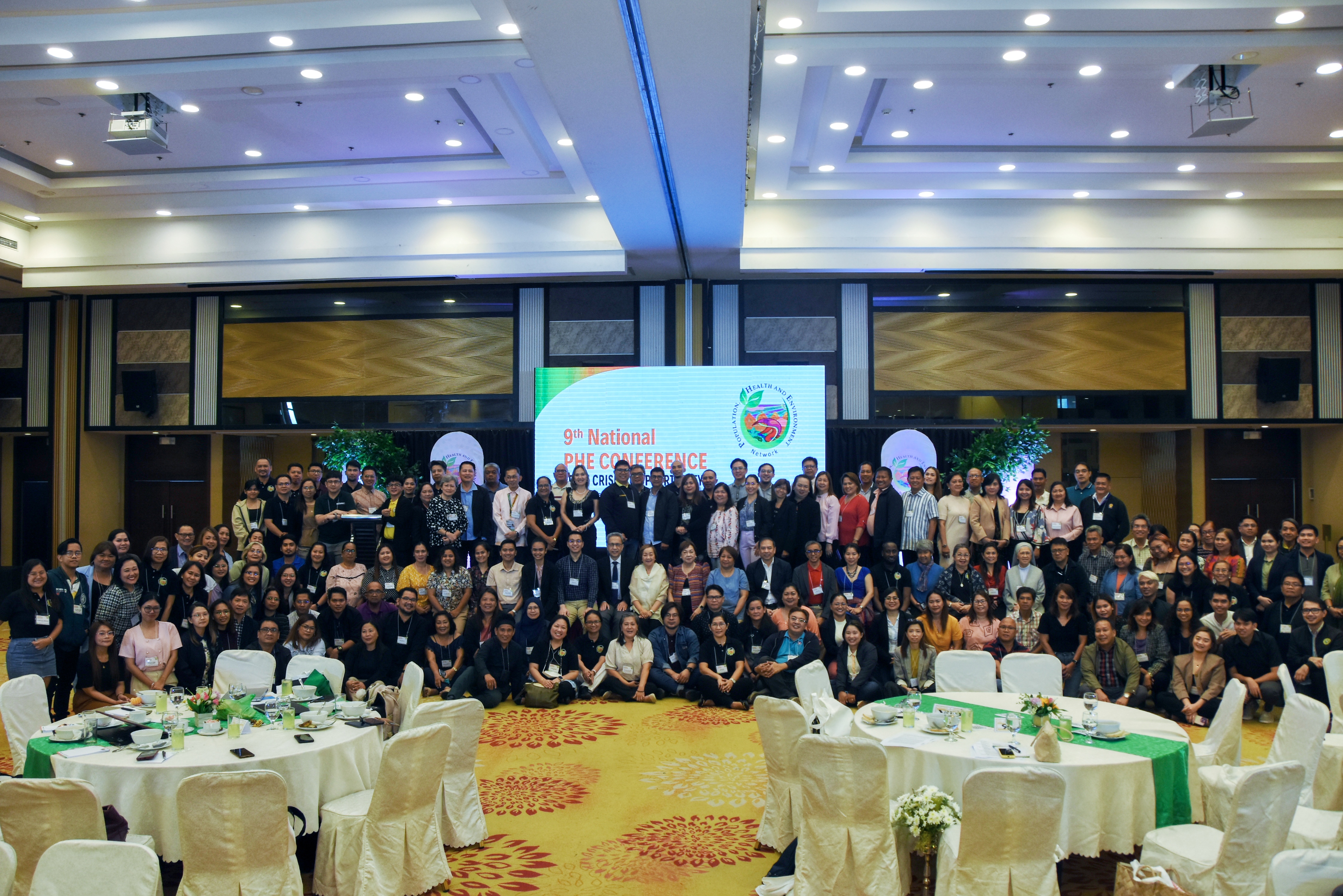Community members plant mangrove in a women-managed area in Zambales. The women leaders here were trained as peer educators advocating both the ecosystem approach to fisheries management and sexual and reproductive health and rights.
Family Planning Month in the Philippines serves as an important reminder of the transformative power of planned families. The benefits of family planning extend far beyond the walls of individual homes, impacting the broader community, environment and resilience of the nation.
This yearly observance offers an opportunity to advocate for the integration of family pla\nning into conservation and other development programs, promoting initiatives that employ holistic approaches such as the population, health and environment (PHE) approach.
Empowerment of women
One of the most significant outcomes of family planning is the empowerment of women. When women have correct information, they can make informed decisions over their bodies and reproductive health about if and when to have children. This allows women to pursue education and career opportunities, leading to increased participation in the workforce and higher household incomes.
Empowered women are also more likely to assume leadership roles in their communities. They become active participants in local governance, advocacy and development initiatives. This shift not only benefits the women themselves but translates to their households and strengthens community power structures and promotes gender equality. Women’s leadership in community-based projects can lead to more inclusive and effective solutions, addressing a broader range of perspectives and needs. This has been evident in PFPI’s PHE programs, where women have assumed typically male-dominated conservation leadership roles.
Environmental conservation
Family planning also plays a critical role in environmental conservation. With fewer people dependent on natural resources, there is less strain on the environment. This reduction in pressure can lead to sustainable management of forests, water sources and marine ecosystems. Smaller, well-planned families contribute to less pollution and reduced greenhouse gas emissions, aligning with global efforts to combat climate change.
In areas where livelihoods heavily rely on natural resources, family planning can help communities transition to more sustainable practices. For instance, coastal communities may shift from overfishing to sustainable fishing practices and aquaculture and agricultural communities may adopt more efficient farming techniques. These changes are crucial for preserving biodiversity and agroecosystems and ensuring that future generations can enjoy the benefits of a healthy environment.

Improved resilience
Economically empowered smaller families have a greater capacity to recover from shocks, including those caused by climate change. When families are not burdened by unplanned pregnancies, they can allocate more resources to savings, education and health. This financial stability enhances their ability to withstand economic downturns, natural disasters and other crises.
Moreover, planned families are better positioned to invest in their children’s future, ensuring that they have access to quality education and healthcare. This investment in human capital contributes to a more resilient society, capable of adapting to changing circumstances. Smaller families can also benefit from social safety nets and support systems, as resources can be more effectively distributed and targeted.
As natural resources are managed more effectively, ecosystems can regenerate better. The increased integrity of ecosystems also increases their resilience, especially to natural disasters; hence, their ability to provide for populations dependent on them is sustained.
Family planning in an integrated approach
To fully achieve the potential of family planning, there needs to be a shift in policymaking and programming toward integrated approaches such as PHE that recognize population as a critical issue across sectors. Policies and programs should be designed to enable the mainstreaming of family planning into various development initiatives. This necessitates stronger convergence among government agencies, non-governmental organizations, community groups and other stakeholders. Key strategies for promoting an integrated PHE approach would include policy advocacy, capacity building, community engagement and evidence-based programming.
The Philippine Family Planning Month is a time to celebrate the country’s progress in promoting reproductive health and to advocate for the broader benefits of planned families. By highlighting the empowerment of women, environmental conservation and improved resilience, we can make a compelling case for integrating family planning into development programs. This holistic approach not only improves the lives of individuals and families but also contributes to sustainable development and climate resilience.
As we close the Family Planning Month celebration, let us commit to advocating for integrated PHE approaches that recognize the interconnectedness of population and the health of the people and the planet. By working together across sectors and disciplines, we can create a more sustainable and resilient future for all. ###





